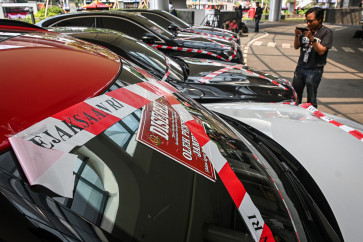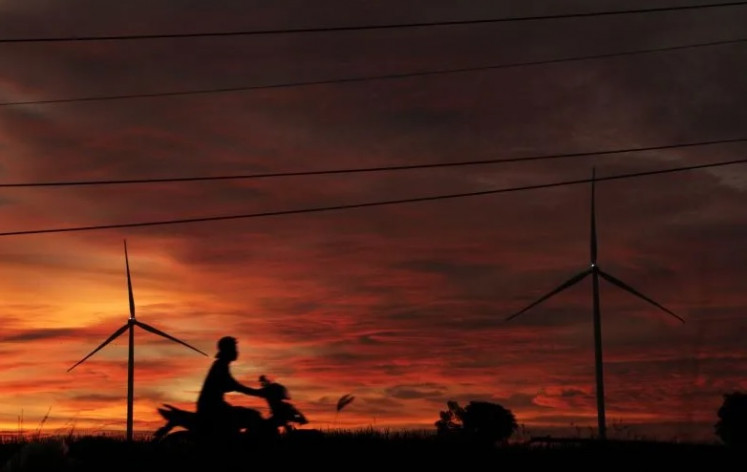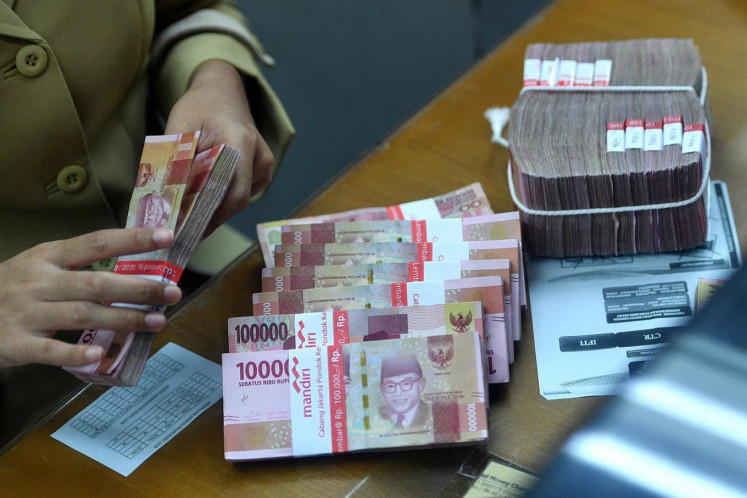Popular Reads
Top Results
Can't find what you're looking for?
View all search resultsPopular Reads
Top Results
Can't find what you're looking for?
View all search resultsGovt offices asked to cut fuel, power use
The government announced in Jakarta on Tuesday a new energy conservation program, amid growing criticism over a perceived lack of action in dealing with the state’s sharp increase in subsidy spending
Change text size
Gift Premium Articles
to Anyone
T
he government announced in Jakarta on Tuesday a new energy conservation program, amid growing criticism over a perceived lack of action in dealing with the state’s sharp increase in subsidy spending.
Coordinating Economy Minister Hatta Rajasa said that under the program, the government expected to cut 10 percent of government institutions’ use of subsidized fuel and 25 percent of their electricity consumption, in an attempt to keep subsidy spending on track.
Hatta said the targets were based on a 2008 presidential decree requiring government offices and state firms as well as civil servants to cut back on fuel, electricity and water consumption.
“There will be working groups in each government institution to monitor weekly [consumption] and report monthly to the chairs, which are The Energy and Mineral Resources Minister and Coordinating Economy Minister,” he told reporters after a meeting with 33 ministers to determine measures to save on water and energy consumption.
“The reports would be conveyed to the President every three months.”
For electricity alone, the government’s saving program would save Rp 2.5 trillion (US$292.40 million), Hatta said. “That does not include the fuel and water saving.”
Indonesia’s “poorly targeted subsidies” have been heavily criticized by economists and international financial institutions, including the World Bank and International Monetary Fund (IMF), as crowding out development spending for social safety net and infrastructure.
The House of Representatives agreed last week to increase the energy subsidy in the 2011 state budget to Rp 195.28 trillion from the original Rp 187.16 trillion to help the government cope with the sharp increase in oil prices.
With the revision, the fuel subsidy spending, for example, was increased to Rp 129.73 trillion from Rp 95.9 trillion, while the subsidy for electricity was increased to Rp 65.65 trillion from Rp 40.7 trillion.
“Each ministry should urge families [of civil servants] to save up [on water and energy]. Also, there needs to be a national movement to save water and energy. This national movement needs to be promoted by ministries and regional leaders in their respective areas,” Hatta said, adding that guidelines for this promotion would be laid out by the Energy and Mineral Resources Ministry.
Although appreciating the government’s efforts, economists were pessimistic about the plan, saying that it was “long overdue”, unlikely to be effective and might fall short of expectations.
“The government’s [plan] tells us that it sees a risk in the ballooning budget. Therefore, they chose to save,” Latif Adam, an economist from the Indonesian Institute of Sciences, told The Jakarta Post.
“We are good at creating concepts and mulling over plans, but are short on implementation. There is a potential for ineffectiveness in this plan if the government does not learn from past mistakes.”
Sri Adiningsih, a well known economist and lecturer at Gadjah Mada University, said there needed to be technical guidelines on the government’s program to ensure that the plan could be implemented effectively.










